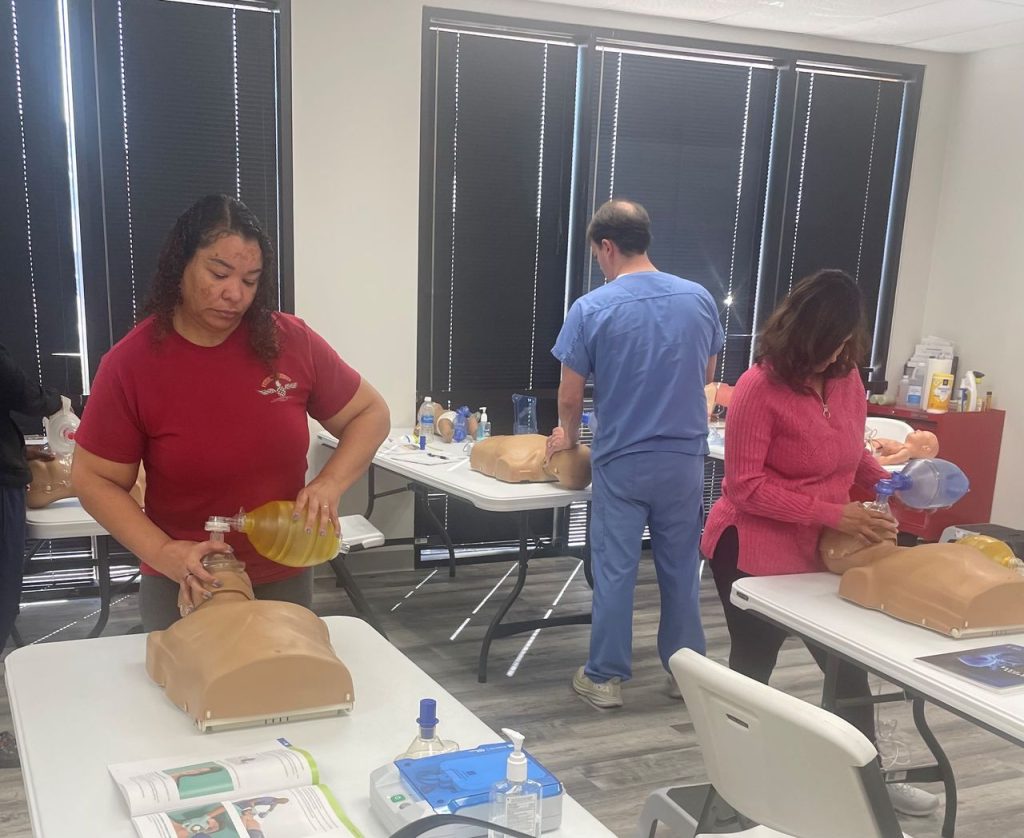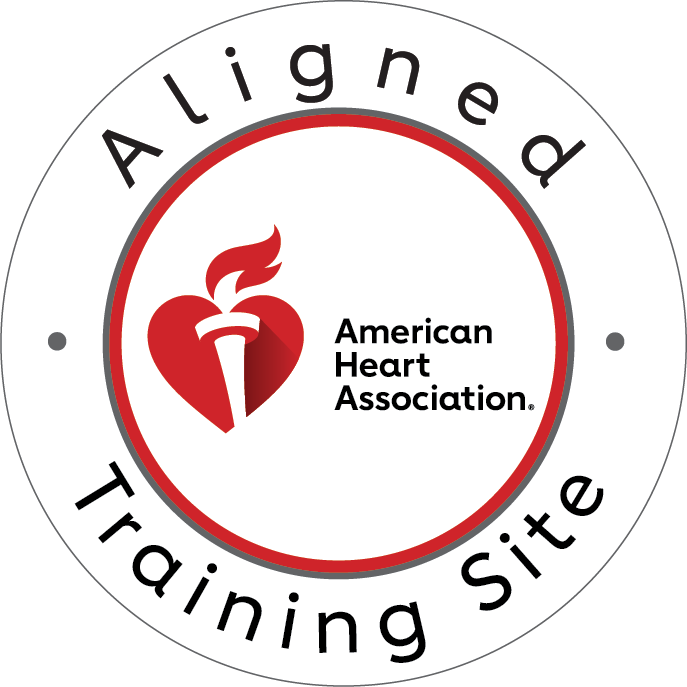I. Introduction
As a medical professional, your ability to perform Cardiopulmonary Resuscitation (CPR) effectively can mean the difference between life and death for a patient. While you may have initially obtained your CPR certification during your training, it’s crucial to keep this vital skill up to date throughout your career.
CPR certification renewal isn’t just a bureaucratic requirement—it’s an essential part of maintaining your professional competence and ensuring the best possible outcomes for your patients. This article will explore the reasons why renewing your CPR certification is so important and guide you through the process of doing so.
II. Why Renew Your CPR Certification
A. Maintaining up-to-date knowledge and skills
Medical science is constantly evolving, and CPR techniques are no exception. Guidelines for CPR are regularly updated based on the latest research and clinical evidence. By renewing your certification, you ensure that you’re familiar with the most current and effective life-saving techniques.
B. Legal and employment requirements
Many healthcare facilities and regulatory bodies require medical professionals to maintain current CPR certification. Failing to renew could put your job at risk or even lead to legal issues if an incident occurs and you’re found to have an expired certification.
C. Confidence in emergencies
Regular renewal courses provide opportunities to practice your skills in simulated emergency scenarios. This repetition builds muscle memory and confidence, allowing you to react swiftly and effectively when faced with a real emergency.
D. Patient safety and improved outcomes
Ultimately, keeping your CPR skills sharp through regular renewal contributes to better patient care. Studies have shown that high-quality CPR significantly improves survival rates for cardiac arrest victims. By maintaining your certification, you’re doing your part to enhance patient safety and outcomes.
III. When to Renew
A. Typical certification expiration periods
Most CPR certifications for healthcare providers are valid for two years. However, this can vary depending on the certifying organization and the specific type of certification. It’s crucial to be aware of your certification’s expiration date to ensure timely renewal.
B. Checking your current certification status
If you’re unsure about when your certification expires, check your CPR card or certificate for the expiration date. Many certifying organizations also offer online verification systems where you can look up your certification status using your name and certification number.
C. Planning ahead for renewal
It’s advisable to start the renewal process at least a month before your certification expires. This gives you ample time to find and complete a course, especially if you prefer in-person training that may have limited scheduling options.
IV. How to Renew Your CPR Certification
A. Online renewal options
- Benefits and limitations Online renewal courses offer convenience and flexibility, allowing you to complete the theoretical portion of your certification at your own pace. However, they may lack hands-on practice, which is crucial for skill retention.
- Reputable online providers Look for online courses from recognized organizations such as the American Heart Association (AHA) or the Red Cross. Ensure that the certification you receive will be accepted by your employer or licensing body.
B. In-person renewal courses
- Hands-on practice benefits In-person courses provide the advantage of hands-on practice with mannequins and real-time feedback from instructors. This practical experience is invaluable for reinforcing proper technique and building confidence.
- Finding local training centers Many hospitals, community colleges, and private training centers offer CPR renewal courses. Check with your employer, as they may provide on-site training or have partnerships with local providers.
C. Blended learning approaches
Some organizations offer blended learning options that combine online theoretical study with in-person skills practice and assessment. This approach provides both flexibility and hands-on experience.
V. Steps in the Renewal Process
A. Reviewing updated guidelines and techniques
The renewal process typically begins with a review of the latest CPR guidelines and techniques. This may include updates on compression depth and rate, changes in the recommended sequence of actions, or new approaches to specific situations.
B. Completing written assessments
Most renewal courses include a written or online test to evaluate your theoretical knowledge. This assessment covers topics such as recognizing cardiac arrest, understanding the chain of survival, and knowing when to use an automated external defibrillator (AED).
C. Demonstrating practical skills
The practical component of your renewal will involve demonstrating your CPR skills on a mannequin. You’ll be evaluated on your technique for chest compressions, rescue breaths, and proper use of an AED. This hands-on assessment ensures you can effectively apply your knowledge in a simulated emergency scenario.
D. Obtaining your renewed certification
Upon successful completion of both the written and practical components, you’ll receive your renewed CPR certification. This usually includes a physical card and may also offer a digital certificate for easy access and verification.
VI. Choosing the Right Renewal Course
A. Accreditation and recognition
Ensure that the renewal course you choose is accredited by a recognized organization such as the American Heart Association or the Red Cross. Your employer or licensing body may have specific requirements, so check with them before selecting a course.
B. Specific requirements for your medical specialty
Different medical specialties may have varying CPR certification requirements. For example, pediatric specialists may need to renew their Pediatric Advanced Life Support (PALS) certification, while emergency department staff might require Advanced Cardiovascular Life Support (ACLS) renewal.
C. Course duration and flexibility
Consider your schedule and learning preferences when choosing a renewal course. Options range from intensive one-day in-person sessions to self-paced online courses with a separate skills assessment. Select a format that allows you to fully engage with the material and practice effectively.
VII. Maintaining Your Skills Between Renewals
A. Regular practice and refresher sessions
Don’t wait until your certification is about to expire to brush up on your CPR skills. Regular practice helps maintain muscle memory and confidence. Many healthcare facilities offer periodic refresher sessions or simulate code situations to keep staff prepared.
B. Staying informed about CPR updates
Stay current with CPR guidelines by following reputable sources such as the American Heart Association or your national resuscitation council. Many organizations offer newsletters or social media updates to keep healthcare providers informed of the latest developments in resuscitation science.
C. Participating in mock emergency drills
Take part in emergency response drills at your workplace. These simulations provide valuable practice in a team setting and help identify areas for improvement in your facility’s emergency response procedures.
VIII. Conclusion
In conclusion, maintaining an up-to-date CPR certification is crucial for medical professionals to provide the highest quality of care and potentially save lives. Regular renewal ensures you stay current with the latest techniques and guidelines, boosting your confidence and competence in emergencies.
Don’t let your certification lapse. Take action today to renew your CPR skills and knowledge. For medical professionals in the St. Louis area, CPR St. Louis offers an excellent opportunity to refresh your life-saving abilities. As an American Heart Association training site, they provide stress-free, hands-on renewal courses for BLS, ACLS, PALS, and CPR.
For those in the St. Louis area, we strongly encourage you to consider CPR renewal in St. Louis with CPR St. Louis. As an authorized American Heart Association training site, CPR St. Louis provides top-notch, stress-free, and hands-on renewal courses for various certifications, including BLS for Healthcare Providers, ACLS, PALS, and CPR and First Aid.
Don’t put off updating your life-saving skills. Enroll in a CPR renewal course in St. Louis today to ensure you’re prepared to respond effectively when it matters most. CPR St. Louis offers the best CPR training in St. Louis, helping you keep your skills sharp and your certification current. Take action now to maintain your readiness to save lives – sign up for your CPR renewal course with CPR St. Louis!





